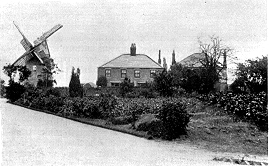|
|
A Month in an English Poorhouse,
Page 8 of 9 shelter and food in this way when they cannot be obtained otherwise more easily. The vagrant department is wholly separated from the rest of the Union, so far that a prominent notice beside the great iron gates which give access to the broad walk which leads up to the house reads, “Vagrants admitted only at the boarded gates.” These are further down the street, at the extreme corner of the grounds, and from them a walk leads to the “tramp house,” a solid, low stone building, with barred windows, standing by itself in a corner of the garden. Comfortable sleeping accommodations are furnished here, with a separate ward for such few women as may come in; and the ample but plain supply of food-porridge, bread and water-which the law allows, is brought out here. The institution effects one desirable result, at least, for one room is fitted with a bath tub and a plentiful supply of hot water, and every applicant is obliged to take a thorough bath before being allowed to go to bed. As this rule is rigidly enforced at all Unions, it follows that the habitual vagrant who spends life wandering from workhouse to workhouse acquires at least the merit of cleanliness. Each applicant is required to empty his pockets of all they contain before he is granted shelter, the very miscellaneous contents being made up into a bundle for which he is given a check. This is to ascertain if the wanderers are really without money, having which they are obliged to go out and get lodging for themselves at some public house. Experienced vagrants become very expert in concealing what small amount of money they may happen to have, to the extent sometimes of burying it outside the grounds, under the hedges, before they come in.
 |
|
9
—End— Books & articles appearing here are modified adaptations
from a private collection of vintage books & magazines. Reproduction of these pages is prohibited without written permission. © Laurel O'Donnell, 1996-2006.
|
|

